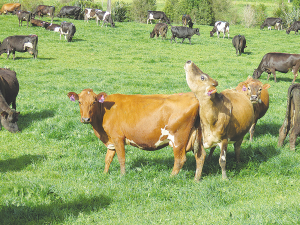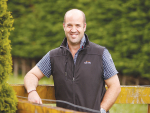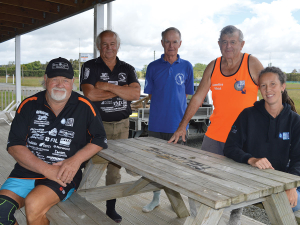This mating you may be looking to adopt some changes.
Maybe you’ve seen other farmers getting better results locally, or a consultant has made suggestions to you. Maybe you’re preparing for tighter margins lasting longer and simply want to hone your effort on the most impactful tweaks that extend profitability.
Like most farmers, you’ll have a proven system that you wish to improve upon.
But you need to have confidence that proposed changes will deliver returns quickly. Margins have been eroding in all directions lately, so you’ll need to clearly understand the upfront and ongoing costs, including upskilling team members.
It’s little wonder that 83% of dairy farmers prefer that someone else goes first in adopting change. That was a key finding of AgriTech NZ in their 2022 Baseline of Digital Adoption in Primary Industries report.
Dairy farmers are sensible and pragmatic through experience. While change remains a constant, farmers maintain a slow and steady rate by taking a methodical approach to change, requiring the proof that takes time to develop.
In defence of dairy farmer caution, the average dairy farm is a complex system. A rational approach to complexity is to keep applying the proven recipes of the past.
The circuit-breaker can come with a surprise poor result, or noticing others doing better, which opens the way for change. But the pace needs to be manageable.
Farmers are individuals with unique operations and goals. They need to be treated as such. This was a point made in a Kellogg Rural Leadership Programme report last year. Before adopting anything, individuals weigh up the relative advantage, looking to compatibility with existing staff and operations, ease of use, trialability and the observable results.
These factors explain why simple, low cost and easy changes that can be tried without major financial commitment or system change are `lowhanging’. They can be methodically checked out ahead of taking risk through more significant changes.
Managing the pace of change is what matters most. A feeling among some farmers that the adoption of hi-tech farming affects their sense of identity was a surprise finding in AgResearch’s 2021 New Zealand Bioeconomy in the Digital Age project.
“There is a sense of potential loss of connectivity with the land or just loss of identity as a farmer and the fear of being at the mercy of a big technology provider where you don’t have much say other than using their technologies,” project lead Mark Shepherd said.
Farmer perception, as surveyed in 2022 by AgriTech New Zealand, also pointed to perceptions of a lack of maturity in technology. This creates a desire to wait and avoid frequent upgrade costs and for prices to drop. Farmer concerns were also voiced around support levels for products that are not made locally, along with those relying on continuous power supply and internet connectivity being additional risk factors, in their view.
Right or wrong, farmers require evidence and experience to change their perceptions. They’re no technophobes, 51% agreeing that they like using digital technology across the business, not just in the office. But dairy farmers do need to understand the costs, see a clear financial return and have a solid rationale to change existing proven systems that work.
The lack of proven value propositions and questions of fit with current systems were factors also highlighted in 2021 by AgResearch, who have since been working with DairyNZ to develop case studies to demonstrate the value of new technology. As compelling business cases become available, more farmers can become convinced of the advantages of change.
A `one-size-fits-all’ approach does not exist and different operations will have access to different opportunities. Larger and multi-site operations may have more talent available to pursue greater specialisation and train key staff, but they must also work hard to retain these critical members of the team once this investment has been made because these people can become difficult to replace.
Smaller teams and family operations may prefer to keep it simple, but are looking for ways to remain competitive at smaller scale. Lowhanging tweaks that can easily access better returns while simultaneously improving lifestyle will get `the tick’.
While change may be inevitable, the pace can be managed. Both the AgResearch and AgriTech New Zealand studies do an excellent job demonstrating that farmers are savvy and look past the brochures to maintain a pragmatic outlook as they evaluate their options.
In the end, it’s about individuality and being clear on your goals within your operation. Change proceeds when you’re clear on the actual problem to be solved and you’re satisfied you have the information you need to make decisions. You must feel comfortable that your team can absorb change to make everything work as a system.
There is no need to ever apologise for being methodical and working at your own pace.

















